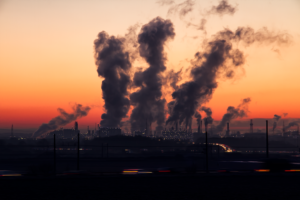
The legislation would require thousands of public and private businesses that operate in California and make more than $1 billion annually to report their direct and indirect emissions. It is estimated that it could impact more than 5,000 companies. The goal, say lawmakers, is to increase transparency and nudge companies to evaluate how they can cut their emissions.
The measure, the first of its kind in the nation, passed in a 48-20 Assembly vote last week before the Senate signed off on it in a 27-8 concurrence vote. It now heads to Gov. Gavin Newsom for a final decision. Speaking at a climate panel in New York City, the governor said “of course” he would sign it. Because many large companies have operations in California, some consider it a de facto national mandate, with wide-spread implications for many large companies.
Reporting on ‘Indirect’ Scope 3 Emissions
While many companies already disclose their Scope 1 and 2 emissions, which come directly from company operations and owned assets, under California’s proposed legislation, businesses would also be required to report their Scope 3 emissions—those produced indirectly up and down their supply chains, including by the end use of their products.
California’s disclosure law would be more stringent than the one being finalized by the Securities and Exchange Commission, which dropped the Scope 3 requirement after intense pressure from corporate representatives.
“We are out of time on addressing the climate crisis,” Democratic Assemblymember Chris Ward said in a statement. “This will absolutely help us take a leap forward to be able to hold ourselves accountable.”
The announcement comes one day after Calif. Governor Newsom and Attorney General Rob Bonta announced a landmark case against five energy companies—Exxon, Shell, Chevron, ConocoPhillips, and BP—which they accuse of misleading the public about the dangers of climate change. The suit—the most ambitious attempt by any American official to hold fossil fuel companies accountable for climate change—alleges that dishonest conduct has continued, as oil companies attempt to mislead the public about their greenhouse gas emissions. ![]()

